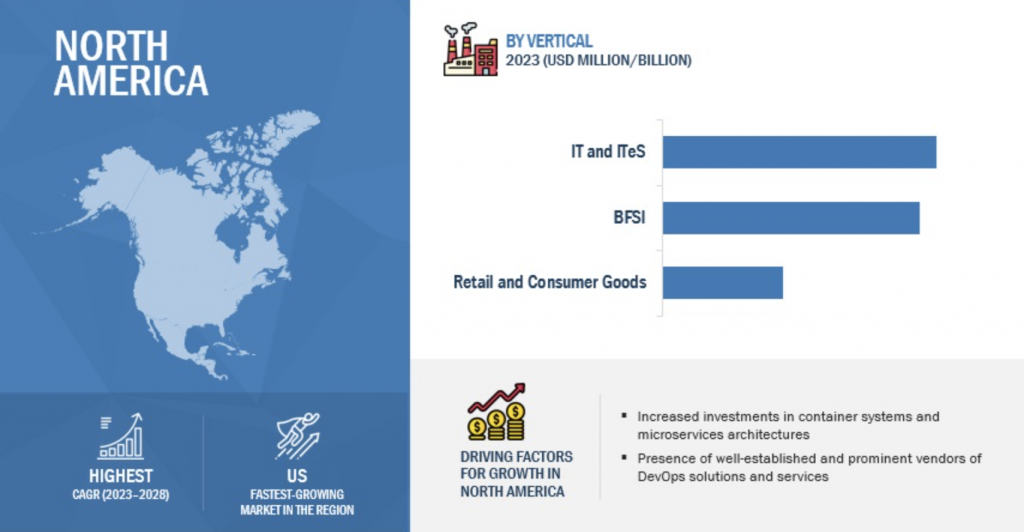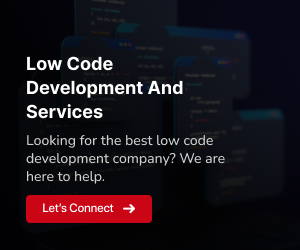Introduction
In today’s fast-paced digital landscape, the role of DevOps (Development and Operations) has evolved into a critical element for businesses striving to stay competitive. DevOps is not just a buzzword; it’s a transformative approach that bridges the gap between software development and IT operations, enabling organizations to deliver software faster, with higher quality, and greater reliability. As the demand for agility and innovation continues to grow, so does the significance of DevOps in the world of technology.
In the following chapters, we’ll delve into the factors that influence the cost of hiring a DevOps service company in the US. We’ll explore market trends, examine various hiring options, including in-house hiring and freelance DevOps engineers, and provide insights into what to expect when partnering with DevOps service companies. By the end of this guide, you’ll have a comprehensive understanding of the costs associated with DevOps services and be better equipped to make informed decisions for your organization.
DevOps Market Trends and Insights in USA

Source: Largest share for DevOps market in USA North America
The United States boasts a thriving DevOps services market, reflecting the increasing recognition of DevOps as a strategic approach to software development and IT operations. Companies across various industries are actively investing in DevOps to accelerate software delivery and improve the efficiency of their IT operations. The market is characterized by a diverse range of service providers, offering a spectrum of DevOps solutions tailored to different business needs.
Factors Influencing the Cost of Hiring a DevOps Service Company

When it comes to determining the cost of hiring a DevOps service company, several crucial factors come into play. Understanding these factors is essential for making informed decisions:
Project Scope and Complexity:
The scope and complexity of your DevOps project will significantly impact the cost. Larger, more complex projects with extensive requirements will naturally incur higher costs.Experience and Expertise:
The level of experience and expertise of the DevOps service company’s team matters. Highly skilled professionals typically command higher rates but often deliver more efficient and effective solutions.Location of the DevOps Service Company:
The geographical location of the service company can also affect costs. DevOps service companies based in regions with a higher cost of living may charge more for their services.Project Duration:
The duration of your project plays a role in cost determination. Short-term projects may have different pricing structures compared to long-term collaborations.
Case Studies: Real-World Examples of Cost Variations
To gain a better understanding of the cost variations in hiring DevOps service companies, let’s consider two real-world case studies:
Case Study 1: Small-Scale E-Commerce Platform
Imagine a small e-commerce startup looking to implement DevOps practices. Their project involves setting up CI/CD pipelines, automating testing, and optimizing server infrastructure. Due to the project’s relatively modest scope, they opt for a DevOps service company with a team of mid-level experts. The cost for this project might fall within the range of $15,000 to $25,000, making it a cost-effective choice for a startup.
Case Study 2: Enterprise-Level Cloud Migration
On the other hand, a large enterprise embarks on a comprehensive cloud migration project, involving containerization, orchestration, and the adoption of advanced security measures. They partner with a reputable DevOps service company known for its extensive experience in handling complex enterprise projects. The cost for this enterprise-level project could range from $100,000 to $250,000 or more, reflecting the project’s scale and complexity.
Also read: Finding the Perfect Fit: Hiring Dedicated DevOps Developers in the USA
Cost Comparison: In-House vs. Outsourcing

It’s worth examining the cost implications of in-house hiring versus outsourcing DevOps services. While in-house teams provide internal control and can align closely with an organization’s culture, they come with significant costs, including:
Salaries and Benefits:
Hiring, training, and retaining skilled DevOps professionals involves substantial salary and benefit expenses.Infrastructure Costs:
In-house teams may require investments in infrastructure, including hardware and software tools.Recruitment and Onboarding:
The recruitment process, including advertising, interviewing, and onboarding, comes with its own expenses.Overhead Costs:
Office space, utilities, and other overhead costs add to the total expenditure.Training and Skill Development:
Ongoing training and skill development are essential to keep in-house teams up-to-date but come with their own costs.
On the other hand, outsourcing DevOps services can offer cost efficiencies through:
Lower Overheads:
Outsourced teams typically don’t require office space, reducing overhead expenses.Variable Costs:
You pay for the specific services you need, making it a variable cost that aligns with project requirements.Access to Cost-Effective Talent:
Service companies can often provide access to cost-effective talent based on their location.Rapid Deployment:
Outsourced teams can be deployed quickly, saving time and costs associated with recruiting and onboarding.
The choice between in-house hiring and outsourcing depends on various factors, including your organization’s size, goals, budget, and the specific requirements of your DevOps projects.
Why should you hire a DevOps Service Company?

DevOps consulting companies distinguish themselves through unique value propositions that set them apart in the dynamic realm of technology transformation. Explore their unparalleled offerings that redefine the landscape:
Streamlining Cloud Migration Efforts:
DevOps consultants excel in orchestrating seamless transitions to cloud environments, ensuring minimal disruptions and maximum efficiency.Implementing Effective Infrastructure as Code (IaC):
Their mastery of Infrastructure as Code empowers automated, consistent, and reliable infrastructure provisioning and management.Building Efficient CI/CD Pipelines:
DevOps consulting experts architect CI/CD pipelines that expedite software delivery while maintaining rigorous quality checks.Embracing Microservice Architecture and Modernization:
Consultants drive the adoption of microservice architectures, transforming monolithic systems into modular, agile applications.Leveraging SaaS Architecture:
With a focus on Software as a Service (SaaS), they engineer scalable, accessible, and collaborative software solutions.Ensuring Compliance with PCI, HIPAA, and SOC2:
Consultants navigate complex compliance landscapes, ensuring your systems adhere to industry regulations and security standards.Upscaling Web Applications for Growth:
DevOps specialists optimize web applications to handle increased user loads, providing a seamless experience even during spikes.
These exclusive value propositions underscore DevOps consulting companies as pivotal allies in your journey towards technological excellence, modernization, and sustainable growth.
Key Factors to Consider When Evaluating DevOps Service Companies

When evaluating DevOps consulting companies, it’s essential to thoroughly assess various aspects to ensure you choose the right partner for your organization’s needs. The following key factors will guide you in making an informed decision:
Assessing Expertise and Experience
- Evaluate the company’s track record in successful DevOps transformations.
- Look for demonstrated proficiency in tools, technologies, and methodologies relevant to your needs.
- Examine the backgrounds of their consultants in terms of skills, certifications, and industry experience.
Reviewing Client Testimonials and References
- Read client testimonials and case studies to gauge the company’s past successes.
- Request references to directly communicate with previous clients and gain insights into their experiences.
Assess whether the company has a diverse portfolio across industries.
Checking for Tailored Solutions
- Determine if the company offers customized solutions based on your specific business goals and challenges.
- Avoid one-size-fits-all approaches and seek evidence of their ability to adapt to unique requirements.
Look for a consulting approach that aligns with your organizational culture and values.
Evaluating Communication and Collaboration
- Gauge the company’s communication skills and responsiveness during initial interactions.
- Consider their ability to foster open communication and collaboration within your teams.
Effective communication is crucial for successful DevOps implementations.
Reviewing Toolchain and Automation Capabilities
- Evaluate the company’s proficiency in DevOps toolchains and automation frameworks.
- Inquire about their approach to implementing automation and streamlining processes.
A strong toolchain and automation foundation are essential for efficiency gains.
Assessing Training and Skill Development Programs
- Inquire about training programs they offer to upskill your internal teams in DevOps practices.
- A good consulting company will prioritize knowledge transfer and skill development.
Training ensures the sustainability of your DevOps initiatives beyond the consulting engagement.
Considering Ongoing Support and Monitoring
- Understand the company’s approach to post-implementation support, maintenance, and issue resolution.
- Ongoing monitoring and optimization are crucial for continuous improvement.
Ensure there’s a clear plan for addressing unforeseen challenges that may arise.
Ensuring Scalability and Flexibility
- Discuss the company’s strategies for scaling DevOps practices as your organization grows.
- Seek guidance on accommodating increased workloads, new projects, and expanding teams.
Flexibility in adapting to changing business needs is essential.
Reviewing Cost-Effectiveness
- Request a transparent breakdown of costs and services to understand the pricing structure.
- Consider the value provided in relation to the investment required.
Balancing cost-effectiveness with quality is key to a successful partnership.
Staying Updated with Industry Best Practices
- Inquire about the company’s commitment to staying current with industry trends and best practices.
- An adaptable and forward-thinking approach is essential in the rapidly evolving DevOps landscape.
A company that values innovation can help you stay ahead of the competition.
In the intricate landscape of DevOps consulting, the selection of the right partner can shape the trajectory of your business. By considering these key factors, you pave the way for a collaborative partnership that fosters innovation, accelerates delivery, and ensures the seamless operation of your software development lifecycle. As you embark on this journey, remember that DevOps isn’t just a methodology—it’s a mindset that aligns your teams, p
From Options to Optimal: Steps to Find Your Ideal DevOps Service Firm

Step 1: Define Your Needs
Before embarking on the journey of selecting a DevOps consulting company, it’s crucial to define your specific needs and objectives. Identify the pain points in your current development and operations processes, and outline the goals you aim to achieve through DevOps adoption. Clear objectives will help you assess potential consulting partners effectively.
Step 2: Research Potential Candidates
Conduct thorough research to identify potential DevOps consulting companies. Leverage search engines, industry directories, and referrals from colleagues to create a list of reputable candidates. Consider the company’s experience, client testimonials, case studies, and the range of services they offer.
Step 3: Evaluate Expertise and Experience
Assess the expertise and experience of each consulting company. Review their team’s skill set, certifications, and past projects related to DevOps implementation. A company with a proven track record of successful DevOps transformations is more likely to provide valuable insights and solutions.
Step 4: Check Industry Knowledge
A proficient DevOps consulting company should have a deep understanding of your industry’s challenges and requirements. They should be able to tailor DevOps practices to suit your specific business needs. Inquire about their experience working with companies similar to yours and how they addressed industry-specific challenges.
Step 5: Understand Their Approach
Discuss the consulting company’s approach to DevOps implementation. A reliable partner should be able to articulate their methodology, highlighting how they assess your current processes, formulate a strategy, and execute the implementation. Their approach should align with your business goals and values.
Step 6: Communication and Collaboration
Effective communication and collaboration are vital in any consulting relationship. Evaluate the company’s communication practices, responsiveness, and willingness to involve your team throughout the engagement. A transparent and collaborative approach fosters a smoother implementation process.
Step 7: Scalability and Flexibility
As your business grows, your DevOps needs may evolve. Ensure the consulting company’s solutions are scalable and adaptable to accommodate changing requirements. Discuss how they handle scaling DevOps practices and whether their strategies align with your long-term goals.
Step 8: Technology Stack
Evaluate the tools and technologies the consulting company is proficient in using. The right partner should have expertise in a wide range of DevOps tools, ensuring they can recommend and implement the best solutions for your environment.
Step 9: Budget and ROI
While cost is a significant factor, it’s important not to compromise quality for a lower price. Discuss the consulting company’s pricing structure, and consider the potential return on investment (ROI) their services can provide. A well-executed DevOps implementation should deliver substantial long-term benefits.
Step 10: Client References
Ask for client references and reach out to past clients to gather firsthand feedback on their experiences. Inquire about the company’s professionalism, problem-solving abilities, and the overall impact of their DevOps solutions.
Also read: How to Stay Up-to-Date on the Latest DevOps Trends in the USA
Where to remote hire DevOps Service Company in the USA?
From established job platforms to specialized communities, this section serves as your guide to discovering the most effective avenues for sourcing top-tier remote DevOps talent. Explore the diverse options available and gain a deeper understanding of the platforms that can connect you with professionals who will elevate your DevOps endeavors to new heights.
1. Geekyants

Research. Collaborate. Build.
Visit Website
GeekyAnts is a design and development studio that specializes in building solutions for web and mobile that drive innovation and transform industries and lives. We hold expertise in state-of-the-art technologies like Next.js, React Native, Flutter, Node, GraphQL and more.
Contact Us
- Team Size: 250 – 999
- Hourly Rate: $25 – $49
- Location: California, USA
- Average Review Rating: 4.9
- Service Lines: Mobile App Development (50%), Web Development (40%), UX/UI Design (10%)
- Clients: Enterprise (>$1B) (60%), Midmarket ($10M – $1B) (30%), Small Business (<$10M) (10%)
- Application Platforms: Amazon (30%), Google app engine (25%), Heroku (25%), Azure Platform (20%)
2. Algoworks

Simplifying technology. Smartly. Disruptively. Globally.
Visit Website
Algoworks is a trusted DevOps consulting company renowned for its comprehensive suite of services. With expertise in automation, integration, and development, they enable businesses to optimize their operations effectively. Their experienced team crafts tailor-made solutions, ensuring a seamless transition to DevOps methodologies. Visit their website for more information.
Contact Us
- Team Size: 500-1k
- Hourly Rate: $25 – $49
- Location: California, USA
- Average Review Rating: 4.7
- Service Lines: Mobile App Development (80%), CRM Consulting and SI (20%)
- Mobile Focus: Games (65%), Other enterprise apps (25%), Social (10%)
- Clients: Enterprise (>$1B) (50%), Midmarket ($10M – $1B) (40%), Small Business (<$10M) (10%)
3. XenonStack

A Stack Innovator
Visit Website
XenonStack specializes in product engineering and technology services, offering advanced digital enterprise solutions. Leveraging DevOps, Big Data Engineering, Data Analytics, and more, they empower businesses to transform their operations and harness the potential of data assets. Their expertise in cloud consulting, including AWS, Google Cloud, and Azure, makes them a preferred DevOps consultancy.
Contact Us
- Team Size: 10-250
- Hourly Rate: $25 – $49
- Location: California, USA
- Average Review Rating: 4.5
- Service Lines: BI & Big Data Consulting & SI (25%), Cloud Consulting & SI (25%), AI Development (15%), IT Managed Services (15%), Cybersecurity (10%), Enterprise App Modernization (10%)
- Clients: Midmarket ($10M – $1B) (55%), Enterprise (>$1B) (25%), Small Business (<$10M) (20%)
- Cloud Computing Focus: Natural Language Processing (35%), Machine Learning (30%), Cognitive Computing (20%), Chatbots & Conversational AI (15%)
4. Contus

Gateway of Digital
Visit Website
Contus is a premier USA-based DevOps company that excels in providing innovative solutions. Their adept team harnesses cutting-edge technology to enhance development and operations, ensuring accelerated product delivery. With a client-centric approach, they tailor DevOps strategies to individual business needs, showcasing wide-ranging expertise across various industries.
Contact Us
- Team Size: 250-500
- Hourly Rate: $25 – $49
- Location: Atlanta, USA
- Average Review Rating: 4.2
- Service Lines: IoT Development (30%), Mobile App Development (20%), Web Development (20%), AR/VR Development (10%), Custom Software Development (10%), Wearable App Development (10%)
- Cloud Computing Focus: AWS (100%)
- Clients: Midmarket ($10M – $1B) (50%), Small Business (<$10M) (30%), Enterprise (>$1B) (20%)
5. Mission Cloud

Accelerate your business and achieve your goals
Visit Website
Mission Cloud is dedicated to providing cloud-based DevOps solutions that empower businesses in the digital age. They help organizations embrace agile methodologies and automate software delivery pipelines, driving efficiency and innovation. With certified DevOps engineers and a deep understanding of cloud platforms like AWS, Azure, and GCP, Mission Cloud stands out as a leader in the field.
Contact Us
- Team Size: 10-250
- Hourly Rate: $100 – $199
- Location: Los Angeles, USA
- Average Review Rating: 3.9
- Service Lines: Cloud Consulting & SI (25%), AI Development (20%), IT Managed Services (20%), IT Strategy Consulting (20%), BI & Big Data Consulting & SI (15%)
- Cloud Computing Focus: Machine Learning (100%), Chatbots & Conversational AI (30%), Cognitive Computing (30%)
- Clients: Midmarket ($10M – $1B) (50%), Small Business (<$10M) (30%), Enterprise (>$1B) (20%)
Whether you’re looking to optimize your IT operations, transform your business processes, or enhance development and delivery, these top DevOps consulting companies in the USA have the expertise to meet your needs. By leveraging their cutting-edge solutions, comprehensive knowledge, and proven track records, you can navigate the complex landscape of modern technology with confidence.
Conclusion
Throughout this guide, we’ve explored the intricacies of the DevOps service landscape in the United States. We’ve delved into market trends and insights, dissected the factors that influence the cost of hiring a DevOps service company, and examined various hiring options, from in-house teams to freelance engineers and specialized service providers. Understanding the cost of hiring a DevOps service company goes beyond price tags; it’s about making informed decisions that align with your organization’s goals and resources. The decision between in-house hiring and outsourcing hinges on a multitude of considerations, including project scope, budget constraints, and the need for specialized expertise.



















